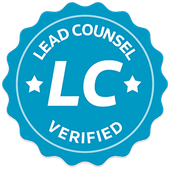Welcome to Jahangiri Law Group
Helping business owners and real estate investors across the Bay Area
NOTARY ON-SITE!
How We Achieve the Best Result for You
Initial Complimentary Phone Consultation
Your first phone consultation with us is free and requires no obligation. We simply want to understand your situation and concerns. We don’t hold back. If we can offer counsel or provide a useful direction, we will tell you. What’s most important to us is that we help you understand your situation and the options available.
Support for Non-English Speakers
We are fluent in Spanish, Urdu, Hindi, and Punjabi, in addition to English. If you, a business associate, or a family member needs counsel in another language, we will make arrangements. Important business decisions benefit from clear communication.
Proactive Planning & Vigorous Representation
When you work with our firm, we bring all of our years of business and legal experience to our engagement. From the most simple business transaction to complex and vital litigation cases, we seek to understand your objectives so we can work in concert in a cost-effective manner. Because we have extensive experience in business matters, we are able to anticipate issues and design the right plan for you.
If you are interested in learning more, we ask you to take advantage by contacting our office today.
Testimonials
Billie, Thank you so much for the kindness, professionalism and all your support throughout the case. You went out of your way to make things happen. Please convey my thanks to all your colleagues who helped and had good wishes for me. I enjoyed meeting with everyone and learned a lot. Thank you for everything.
Thank You Lubna!
“I used Lubna’s Legal services to recover my wages and referral fees. We won the case on all grounds. My experience with Lubna during the 5 yr battle was exceptional, the case went through many downs for us for reasons beyond our control, But Lubna never gave up hope and used the legal process, sticking to the facts, never even once tried to use frivolous reasons or points to prevail on any issue. Her communication and articulation of legal points seem to be exceptional. I even saw in few instances the judge and opposing counsel were not clear that a point could be made out. This case was fought against some of the big-name attorney’s who tried to put us down using their money, power, and clout, but the end of the day even though we lost many battles we won the war, and I give full credit to Lubna’s tenacity and ability to use the system to prevail. I am very happy that my decision to choose Lubna to fight this case was right.”
– Anonymous
I found her to be detail oriented and very effective in getting a speedy resolution in my company’s favor.
“Lubna represented my company in a recent contractual issue. In my interactions, I was very pleased with her understanding of my situation; she was very responsive to my questions and patiently explained all aspects of the case and available options to me. I found her to be detail oriented and very effective in getting a speedy resolution in my company’s favor. I would whole-heartedly recommend her services to any other company.”
– Sangam Singh
Recent Blog Posts
Jahangiri Law Group is a woman-owned and minority-owned small business, and provides a diverse and inclusive atmosphere for our employees, clients and in community involvement. Additionally, we are dedicated to mentorship of young adults interested in pursuing law as a career. We are passionate about paving the path to success for future lawyers. To that end, Jahangiri Law Group offers summer internship opportunities to aspiring undergraduate and law students. We encourage individuals from diverse communities to apply. We are a business and real estate law firm, located in San Ramon, East Bay.










